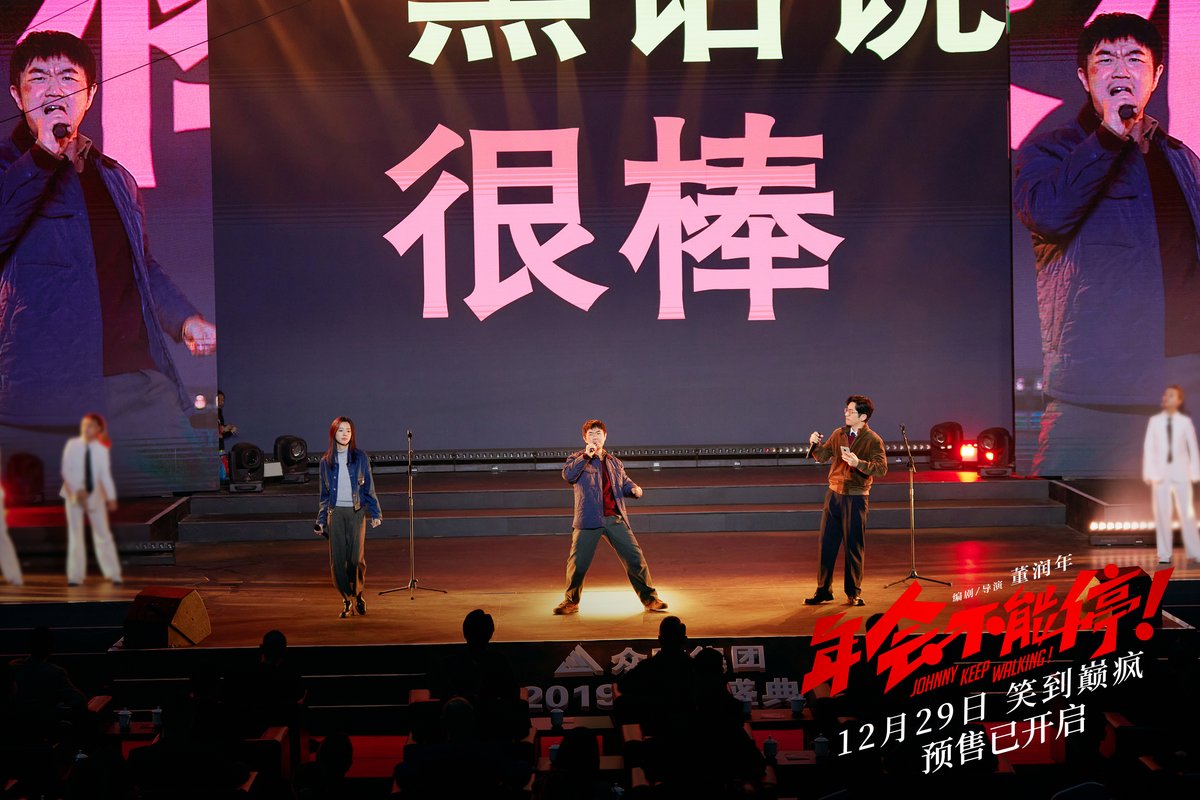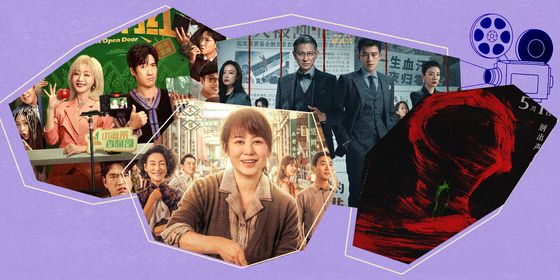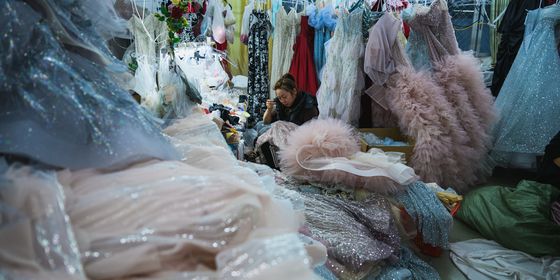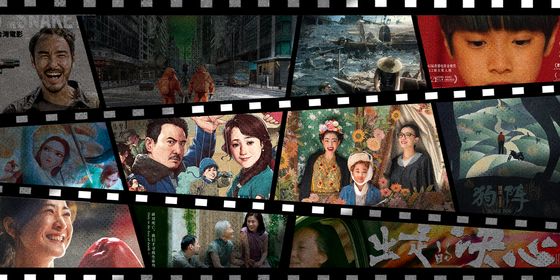“Johnny Keep Walking!” has struck a chord with young Chinese workers who relate to its biting satire of pointless bureaucracy, lazy bosses, and the tradition of annual galas at Chinese companies
It’s no surprise that Johnny Keep Walking! has proved a hit at China’s box office. The satirical comedy touches on topics the country’s young “wage slaves (打工人)” have been complaining (and meme-ing) about for years now: overtime, nasty bosses, fusty culture from bygone eras, pointless bureaucracy… But one thing sealed the deal for Johnny’s success—its take on annual galas, perhaps the most dreaded and cringe-inducing event on Chinese workers’ calendars.
With its biting comedic take on these annual company gatherings (年会 in Chinese) and workplace culture in general, this relatively low-budget, poorly promoted comedy surged to the top of China’s box office. Since its release on December 29, 2023, it surpassed star-studded films like The Goldfinger, starring household Hong Kong actor Andy Lau, and If You Are the One III by Feng Xiaogang, one of the country’s best-known directors. Johnny has a score of 8.2 points out of 10 from viewers on Douban, becoming the highest-rated domestic comedy film on the popular review platform in the past five years. Despite its awkwardly upbeat ending, the movie is a massive hit that reflects the feelings of millions of young office workers.
Director Dong Runnian’s third feature film, Johnny follows Hu Jianlin (Da Peng), a machine fitter mistakenly transferred into a white-collar role due to a murky chain of selling official positions during company downsizing. In a period of mass layoffs, the promotion of a middle-aged man with no relevant experience makes Hu’s new colleagues believe he must have powerful connections. When HR manager Ma Jie (Bai Ke) meets Hu for the first time, he greets him with a 90-degree bow in the hope of ingratiating himself with the baffled worker.
The misunderstanding is quickly discovered, but instead of reporting Hu, his colleagues hide their mistakes to protect their jobs. Hu receives multiple promotions and moves closer to the center of a vast corruption case involving a company executive.
The film, whose Chinese title translates to “The Annual Gala Must Go On,” hit a nerve with many young workers disgruntled with corporate culture and the obligatory gatherings. Annual galas are often the largest and most extravagant events of the Chinese corporate calendar—in the movie, Hu’s company spends 60 million yuan on the venue, stage sets, performance preparations, lighting, and catering. These events typically involve all employees at a company, with each department or team instructed to perform on stage for colleagues. High-flying bosses attend alongside lowly factory workers, sometimes with their families too.
Though these gatherings are meant to promote team cohesion and celebrate the firm’s work, the internet is full of complaints about them. “Us wage slaves have endured the agony of annual galas for too long,” goes one hashtag on Weibo with over 9.3 million views since January 8. Many exhausted “corporate livestock” are infuriated to discover that, after toiling hard for a year for their bosses, they still have to perform on stage to please them. Netizens have thus lauded a scene in Johnny when Hu and his friends perform a song mocking the company at the gala.
The chaos of the gala in Johnny is just one way that director Dong aims at corporate culture. The huge business in the film is defined by a strict hierarchy, compulsory “voluntary overtime,” endless meetings of no consequence, and pressure to respond instantly to messages. Leaders are always right, and when something goes wrong it is automatically blamed on the intern.
Corporate speak is pilloried. “The key to this issue is to identify the key issue,” one high-ranking boss quips to staff in the film. Employees are urged to, “Align granularity, form combined fists, find leverage points” but no one knows what that means. These phrases echo the real-world phenomenon that has become known online as “internet industry jargon,” a convoluted discourse common in technology companies that is so abstract as to lose all meaning, but whose complexity gives the impression of professionalism.
In Dong’s world, the corporation is a behemoth of activity, but most of it is empty and even counterproductive, giving the impression that the entire edifice could collapse at any moment should anyone discover that all anyone in the company does is push paperwork from one desk to another in an endless cycle of bureaucracy. Adding to the farce is the emergence of Zhuang Zhengzhi (Wang Xun) who sneaks into the giant company campus and lives there for days enjoying complimentary food for employees and residing in the workers’ massage area. In an interview with Portraits magazine on January 10, Dong said that Zhuang was inspired by a real news event where a homeless person lived inside an office building for a month without anyone noticing.
Even state media in China have lauded Johnny for accurately capturing the reality of modern work. Hu Xin, associate professor at China’s Central Academy of Drama, told China Movie Report, a TV show by state broadcaster CCTV, that “the film presents people with scenes they are familiar with…while I was watching, lots of people next to me were talking to each other saying, ‘My boss’ or ‘My colleague is just like that.’”
“During the three years of the pandemic, various industries have faced setbacks, and there has been a growing dissatisfaction towards work. As the economy takes a downturn, it’s interesting to see people poking fun at bosses and workplaces,” says Aladin Farré, a producer and host of the Middle Earth Podcast (which is part of the TWOC podcast network), referencing the film’s relatability to young workers. “The film successfully…addresses dilemmas such as whether to sacrifice personal life for a company and even raises the issue of sexual harassment.”
Johnny is not only relatable to China’s white-collar workers, it is also funny. Many have praised the absence of obvious punchlines, jokes about bodily functions, or mocking physical disabilities, all tropes that have been common in Chinese comedies. “The film satirizes what we truly want to satirize…without bullying the weak or fearing the strong, without deception or flattery,” reads one comment about the film with more than 6,000 “likes” on Douban.
The only disappointment comes at the film’s finale, where situations are resolved largely through the intervention of company higher-ups who push ahead with layoffs, only in a more friendly way. Perhaps Dong wanted to end with some optimism. “Even though there are many complaints about the workplace now, I think overall, if you compare it to 20 years ago, there has been a lot of progress…People may witness some setbacks and unfairness, but the overall workplace environment is still improving,” Dong told Portraits this January.
But despite this awkward attempt at a happy ending, Johnny’s point about modern work is clear. When the gala finally goes ahead, Hu gets on stage and sings: “Are you, like me, feeling anxious during layoffs, working overtime at your position? Are you, like me, unable to let go of the shackles of social insurance, even if you are made a scapegoat every day?”
In reality, lowly workers may be powerless to change the culture of their offices, or even to avoid performing in their company’s annual galas. But Johnny at least provides a momentary outlet for young employees’ fantasies of telling their bosses exactly how they feel about their working environment. As one comment reads on Douban, “For what we can’t resist or rebel against in reality, let us, the tiny cogs of society, find comfort in the movies.”















